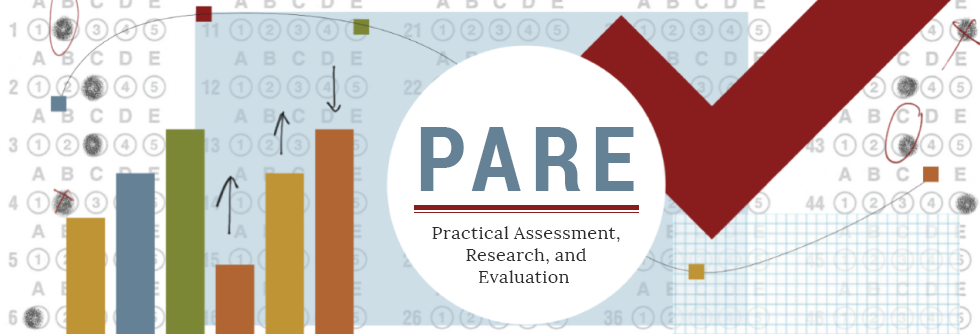Using recursive regression to explore nonlinear relationships and interactions: A tutorial applied to a multicultural education study
- Kenneth David Strang
Abstract
This paper discusses how a seldom-used statistical procedure, recursive regression (RR), can numerically and graphically illustrate data-driven nonlinear relationships and interaction of variables. This routine falls into the family of exploratory techniques, yet a few interesting features make it a valuable compliment to factor analysis and multiple linear regression for method triangulation. By comparison, nonlinear cluster analysis also generates graphical dendrograms to visually depict relationships, but RR (as implemented here) uses multiple combinations of nominal and interval predictors regressed on a categorical or ratio dependent variable. In similar fashion, multidimensional scaling, multiple discriminant analysis and conjoint analysis are constrained at best to predicting an ordinal dependent variable (as currently implemented in popular software). A flexible capability of RR (again as implemented here) is the transformation of factor data (for substituting codes). One powerful RR feature is the ability to treat missing data as a theoretically important predictor value (useful for survey questions that respondents do not wish to answer). For practitioners, the paper summarizes how this technique fits within the generally-accepted statistical methods. Popular software such as SPSS, SAS or LISREL can be used, while sample data can be imported in common formats including ASCII text, comma delimited, Excel XLS, and SPSS SAV. A tutorial approach is applied here using RR in LISREL. The tutorial leverages a partial sample from a study that used recursive regression to predict grades from international student learning styles. Some tutorial portions are technical, to improve the ambiguous RR literature. Accessed 17,736 times on https://pareonline.net from March 16, 2009 to December 31, 2019. For downloads from January 1, 2020 forward, please click on the PlumX Metrics link to the right.
Keywords: Statistical Analysis, Research Methodology
How to Cite:
Strang, K. D., (2009) “Using recursive regression to explore nonlinear relationships and interactions: A tutorial applied to a multicultural education study”, Practical Assessment, Research, and Evaluation 14(1): 3. doi: https://doi.org/10.7275/qcgb-m092
Downloads:
Download PDF
View PDF
790 Views
132 Downloads
